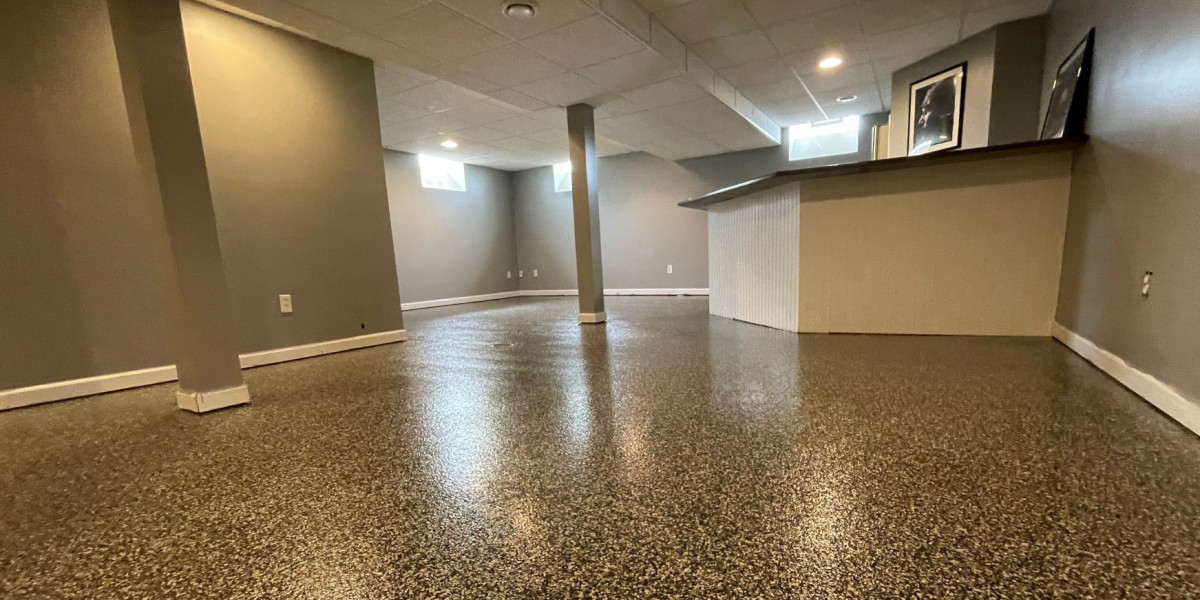Floor coating is a transformative solution that not only enhances the aesthetics of your basement but also provides durability and protection against moisture and wear. Whether you're looking to create a functional living space or a home gym or simply want to upgrade your basement's look, understanding the benefits and process of basement floor coating is essential.
Importance of Basement Flooring
Floor coating serves multiple purposes beyond aesthetics. It acts as a protective layer that enhances the durability of your basement floor, making it resistant to stains, impacts, and moisture. This is particularly crucial in basements where humidity and potential water leaks can compromise traditional flooring materials. A properly applied coating not only improves the longevity of your floor but also adds value to your home by creating a clean, attractive space.
Types of Basement Coatings
There are several types of floor coatings available, each with its own set of benefits and applications. The most popular and versatile option is epoxy coating, known for its durability and seamless finish. Polyurea and acrylic coatings are also options, each offering unique advantages depending on your specific needs and budget. However, for this guide, we will focus primarily on epoxy flooring due to its widespread use and effectiveness in basement environments.
Benefits of Epoxy Basement Coating
Durability and Longevity
Epoxy basement flooring is renowned for its durability and longevity. Once cured, epoxy forms a hard, protective surface that can withstand heavy foot traffic, impacts, and abrasions. This makes it ideal for basements used as workshops, storage areas, or recreational spaces where durability is paramount. Unlike traditional concrete floors, epoxy-coated floors are less prone to cracking and staining, ensuring they maintain their pristine appearance for years to come.
Moisture Resistance
Basements are susceptible to moisture infiltration, whether from groundwater seepage, high humidity levels, or occasional spills. Epoxy floor coatings create a seamless barrier that prevents moisture from penetrating the floor substrate. This not only protects against water damage but also helps to inhibit the growth of mold and mildew, contributing to a healthier indoor environment.
Easy Maintenance
One of the key advantages of epoxy floor coatings is their ease of maintenance. The smooth, non-porous surface of epoxy makes it resistant to dirt, dust, and liquids, allowing for quick and hassle-free cleaning. Regular sweeping and occasional mopping with a mild detergent is usually all that's required to keep an epoxy-coated floor looking pristine. Unlike carpet or traditional tile grout, epoxy doesn't harbor allergens or stains, making it an excellent choice for households with pets or allergy sufferers.
The Process of Basement Epoxy Floor Coating
Preparation
Proper preparation is crucial for the successful application of epoxy basement floor coatings. The concrete substrate must be clean, dry, and free of any contaminants such as dirt, oil, or previous coatings. This typically involves thorough cleaning using degreasers and etching the surface to ensure proper adhesion.
Application
The application of epoxy floor coating involves several steps to achieve a smooth, durable finish. First, a primer coat is applied to the prepared substrate to enhance adhesion. Once the primer has cured, multiple layers of epoxy resin are applied using a roller or squeegee. Depending on the desired thickness and aesthetic preferences, decorative flakes or aggregates can be broadcast into the wet epoxy to add texture and visual appeal. Finally, a clear topcoat is applied to seal and protect the epoxy layers, providing additional durability and UV resistance.
Curing and Drying
After the epoxy coating is applied, it undergoes a curing process where it hardens into a resilient surface. Curing times can vary depending on environmental conditions such as temperature and humidity. It's important to follow manufacturer guidelines regarding curing times and avoid heavy foot traffic or placing heavy objects on the floor until the epoxy is fully cured. Once cured, the basement can be used as intended, providing a seamless and attractive flooring solution.
Importance of Professional Installation
While DIY epoxy kits are available, professional installation is recommended for achieving optimal results. Experienced contractors have the expertise, equipment, and materials necessary to properly prepare and apply epoxy coatings, ensuring a flawless finish that enhances the durability and aesthetic appeal of your basement floor.
Conclusion
Investing in basement floor coating, particularly basement epoxy floor coating, offers numerous benefits for homeowners looking to improve the functionality and appearance of their basements. From enhanced durability and moisture resistance to easy maintenance and aesthetic appeal, basement epoxy coating provides a cost-effective solution for transforming unused space into a valuable asset.















